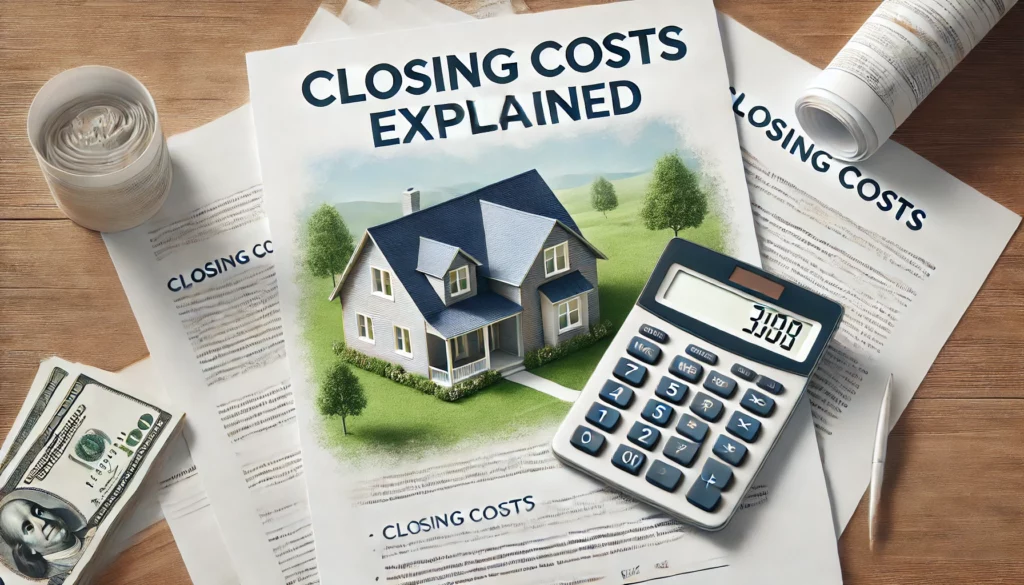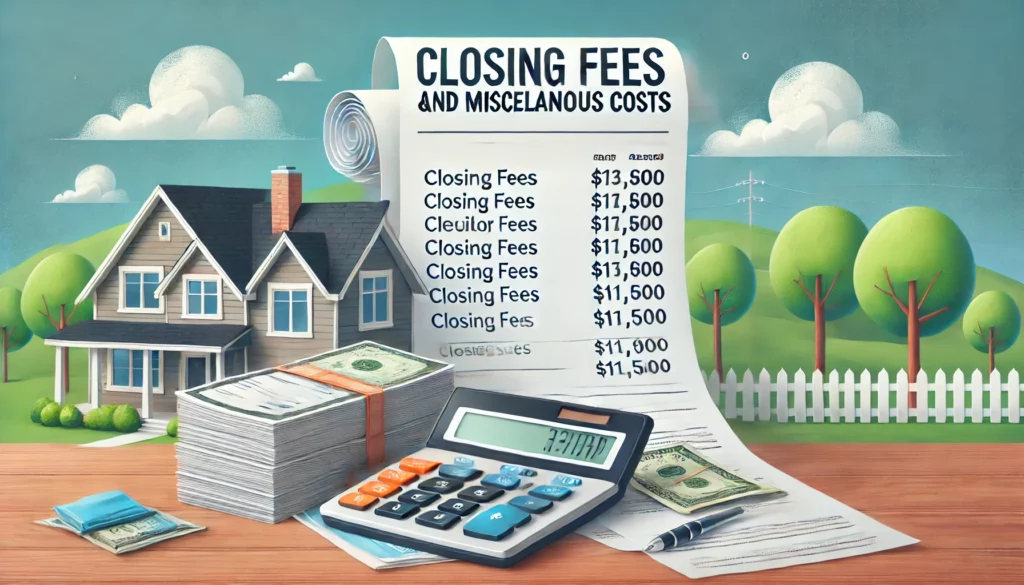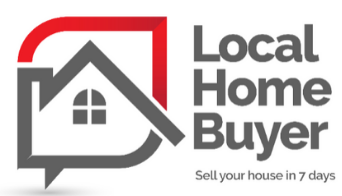Introduction
When you’re searching for information on closing costs, you’re likely feeling a mixture of uncertainty and curiosity about the hidden costs involved in selling your house. Whether you’re a first-time seller or have sold before, understanding closing costs is crucial to ensuring you know exactly how much money you’ll walk away with after the sale. The process of selling a home can be complicated, and it’s easy to feel overwhelmed by the many potential fees that may pop up at the last moment. You’re probably looking for clarity and a breakdown of exactly what costs you need to account for, whether you’re selling to a traditional buyer or opting for a cash sale to an investor.
In addition, you might have concerns about how to mitigate or reduce these costs to make the sale as profitable as possible. You could be wondering: How much are closing costs really going to set me back? Are they negotiable? And do I need to worry about hidden fees creeping up on me? These are some of the pressing questions, and this guide is here to answer them in detail, offering a comprehensive view of what to expect. By the end, you’ll also see why selling your house for cash to an investor could be a more financially advantageous option for you. We’ll make sure to break down all the numbers and show you how much closing costs could eat into your sale price, with examples based on typical fees in areas like Maryland, Washington DC, and Virginia.
What Are Closing Costs in a Home Sale?

When you sell a house, it’s not just about receiving an offer and handing over the keys. There are various financial aspects to consider, with closing costs being one of the most significant and potentially confusing areas. Closing costs can include everything from agent commissions to repair credits, and understanding each element can help you better plan your finances and avoid unexpected financial strain when the deal closes.
Closing costs in a home sale typically range between 2% and 5% of the home’s sale price, though this can vary depending on where you live and the specific terms of your contract. For example, if you’re selling a home for $300,000, your closing costs could range anywhere from $6,000 to $15,000, depending on your location and the terms of your deal.
The breakdown of closing costs is fairly straightforward, though it might look like a lot when combined. The largest chunk often comes from real estate agent commissions, but other costs such as repairs, home warranties, title insurance, and transfer taxes can also add up quickly.
Real Estate Agent Commission Fees: The Biggest Cost
If you’re working with a real estate agent to sell your home, one of the biggest costs you’ll face is the commission fee. This is typically 5% to 6% of the sale price, and it’s split between the buyer’s and seller’s agents. This is the largest cost involved when selling a house through traditional means, and it can be quite a hit to your profits.
For example, if your house sells for $300,000, the agent commission could be between $15,000 and $18,000, with half of that going to the buyer’s agent. While this cost is often negotiable, especially if you’re in a competitive market or selling a high-value property, it’s essential to understand how significant this fee can be when considering how much money you’ll ultimately net from the sale.
However, this cost is often one of the easiest to mitigate in cash sales. Selling your house to an investor eliminates agent fees altogether. In fact, if you decide to sell to an investor, you can often bypass agent fees and other costs entirely.
To get a clearer picture of how much What It REALLY Costs To Sell Your Home in Maryland, we break down the costs involved in different regions, including agent commissions, title fees, and more.
Title Insurance and Transfer Taxes

In many states, title insurance and transfer taxes are mandatory closing costs. Title insurance protects the buyer against any claims that may arise over the property’s title after the sale, while transfer taxes are levied by the state or local government on the transfer of ownership. These can be expensive, often reaching thousands of dollars, depending on the sale price of the home.
For example, title insurance can cost anywhere between $300 to $1,500, and transfer taxes can range from 0.1% to 2% of the sale price. So, for a $300,000 home, these costs could add anywhere from $3,000 to $8,000.
However, in some cases, you may be able to negotiate with the buyer on who pays these fees. But when selling to an investor, they often take care of most of these costs, leaving you with far fewer fees to pay out of pocket.
If you’re wondering about how these closing costs compare to traditional sales, Will Selling Cost You Money in Washington DC? will help you understand the local market better and how these costs may vary by region.
Home Repairs and Credits: Hidden Costs You Might Not Expect
One of the most frustrating aspects of selling a home is the potential for last-minute repair requests. After receiving an offer, a buyer may demand repairs or credit for issues found during the inspection, further eating into your profits. Some of the most common repairs include issues like outdated plumbing, electrical problems, or roof damage.
Depending on the severity of the repairs, this could cost you anywhere from $1,000 to $10,000 or more. For instance, a new roof can cost $5,000 to $10,000, while a broken HVAC system might require a $2,500 repair. Additionally, some sellers may opt to offer repair credits to buyers instead of making the repairs themselves, but this still reduces your final payout.
If you’re selling to an investor, this is where the cash sale can be advantageous. Investors typically buy properties as-is, meaning you don’t have to worry about repairs or credits. You’ll be able to sell the house quickly and move on without the burden of additional financial strain.
For a deeper look at the impact of repairs on your sale, and why they might cost more than you think, check out How Much Does Holding A Property Cost in Washington DC and how property conditions can influence your sale.
Closing Fees and Miscellaneous Costs

There are also a variety of miscellaneous fees that contribute to closing costs. These can include administrative fees, notary fees, courier fees, and more. While these individual fees may not be as large as agent commissions or title insurance, they still add up.
Some of the common closing fees include:
- Escrow fees: These typically range from $500 to $2,000, depending on the complexity of the transaction.
- Notary fees: Can cost between $50 to $200.
- Courier fees for documents can range from $50 to $100.
Together, these smaller fees often total an additional $1,000 to $3,000, depending on the transaction.
However, one of the main advantages of selling to a cash buyer is that these fees are often minimized or eliminated altogether. Cash sales tend to be simpler, with fewer parties involved and less red tape, meaning fewer fees to pay.
For a clearer understanding of the actual Costs of Listing With An Agent, check out our detailed comparison of cash sales versus listing through traditional channels.
How Closing Costs Impact Your Net Profit
When you sell your home, the final sale price isn’t the amount of money you’ll walk away with. Closing costs can significantly reduce your net profit, which is the amount you ultimately pocket after all expenses. It’s essential to have a clear understanding of these costs to better manage your expectations.
For instance, let’s say your home sells for $300,000. If your closing costs are 5%, that could mean $15,000 is deducted from your sale price. If you then have to pay an agent’s commission of 6% ($18,000), you are already looking at a $33,000 reduction in your net profit.
The net profit from selling your house is often much lower than anticipated because many sellers overlook how substantial these additional costs can be. One example would be paying for repairs. If your home needs major work, you could be forced to lower your asking price or provide credit to the buyer, reducing your net profit even further.
Selling your home to a cash buyer, however, can eliminate many of these costs, especially repair costs and agent commissions. If you are trying to maximize your net profit, a cash sale might be a better option to consider.
If you want to better understand how home sale profits work, check out this article that explains strategies for maximizing your profit when selling your house.
How Property Location Affects Closing Costs

The location of your property plays a significant role in determining the closing costs you’ll face when selling your home. Each state and local municipality has different laws and taxes that affect the sale process. For example, transfer taxes vary greatly depending on where your property is located. In some states, these taxes can be as high as 2% of the sale price, while in others, they may be much lower.
If you’re selling in a state like Maryland, transfer taxes could be a major expense. If your property sells for $300,000, a 2% transfer tax could cost you $6,000. On the other hand, in states like Virginia or Washington DC, the rates can be significantly lower, but you might face additional closing fees or home inspection costs that could drive up the overall expenses.
Additionally, some areas may have local taxes, municipal fees, or home inspection requirements that can add thousands of dollars in unexpected costs. These charges are typically non-negotiable and can vary widely depending on where you are selling.
One way to reduce the burden of these fees is to sell your property to a cash buyer. Investors often handle a majority of these costs, streamlining the process and helping you avoid many of the location-based fees that you would otherwise have to pay.
Understanding Closing Cost Negotiations with Buyers
One thing that many home sellers may not know is that closing costs are sometimes negotiable, depending on the terms of your sale. While agent commissions are typically set, other costs—such as repair credits, escrow fees, or even title insurance—can sometimes be negotiated with the buyer.
For example, a buyer might be willing to pay for the title insurance or cover some of the closing fees if they are motivated enough to secure the deal. This is more common in buyer’s markets or when the seller is in a hurry to sell. If you’re selling your property traditionally, there may be room to negotiate these fees, especially if your home is in great condition and is likely to attract competitive offers.
However, negotiations can be a tricky process, and not all buyers will be open to covering these costs. Moreover, negotiations often delay the sale process, and for sellers in need of a quick closing, this can be a burden. By contrast, cash buyers typically offer a straightforward transaction, where most of these fees are either eliminated or covered by the investor. This results in a much faster, more predictable closing process.
For tips on negotiating closing costs with buyers, visit Zillow’s Seller Guide to get expert insights on how to handle negotiations effectively.
The Impact of Market Conditions on Closing Costs

Market conditions also play a major role in the amount of closing costs that sellers must contend with. In a seller’s market, where demand exceeds supply, buyers may be more willing to absorb costs like title insurance, transfer taxes, or even repair credits to secure a deal. In these conditions, sellers may have more room to negotiate and may not face as many out-of-pocket expenses.
On the other hand, in a buyer’s market, where there are more homes for sale than there are buyers, sellers may find themselves shouldering more of the costs to make their property attractive. This could mean offering concessions to buyers, such as paying for repairs or closing costs, which can significantly lower the seller’s profit.
If the housing market is experiencing high competition, the seller may also face inspection requests or other demands from buyers looking to get the best deal possible. Sellers in these conditions often feel pressured to comply with buyer demands, which can add unforeseen expenses to their closing costs.
For sellers who are looking to avoid these uncertainties, selling their home to an investor can offer a way to sidestep the unpredictability of market conditions. Cash sales offer more certainty, with fewer demands for repairs or last-minute costs.
The Bottom Line: Why Cash Sales Can Be a Better Option
When all of the costs are added up, it’s easy to see why closing costs can be a major concern for home sellers. Between agent commissions, title insurance, repairs, and miscellaneous fees, these costs can eat into your profits significantly. If you’re selling a house for $300,000, your closing costs could easily range from $10,000 to $20,000 or more, depending on your location and the specifics of the sale.
For many sellers, especially those in a hurry to sell or facing financial difficulties, these costs can make selling the traditional way a less attractive option. This is where selling your home for cash to an investor becomes an appealing alternative. Selling to an investor often eliminates most, if not all, of these costs, allowing you to keep more of the sale price in your pocket and close quickly—often within days rather than weeks or months.
If you’re considering whether a cash sale might be right for you, take a look at How Much Will Listing Your House Really Cost in Virginia? to see the potential savings and benefits of choosing a cash offer over a traditional sale.
Conclusion: Is Selling for Cash the Right Choice?
The decision to sell your house is never easy, but understanding closing costs and how they impact your bottom line can help you make a more informed choice. While traditional sales involve several costs that can cut into your profits, selling for cash to Local Home Buyer may provide a simpler, faster, and more cost-effective option. Whether you’re dealing with repairs, agent commissions, or hidden fees, a cash sale can help you avoid most of these costs and allow you to move on with minimal stress.
At Local Home Buyer, we understand that selling a home can be overwhelming, especially when faced with the high costs associated with traditional sales. That’s why we offer cash offers that allow you to sell your house quickly, with no commissions, fees, or repairs required. With Local Home Buyer, you can walk away with more money in your pocket and less hassle, making the selling process easier and more convenient for you.
Ultimately, it’s important to weigh the pros and cons carefully. If you’re looking for a fast, hassle-free sale with fewer financial burdens, selling to Local Home Buyer could be your best option. Reach out to us today and see how we can help you make a smooth, stress-free sale!

